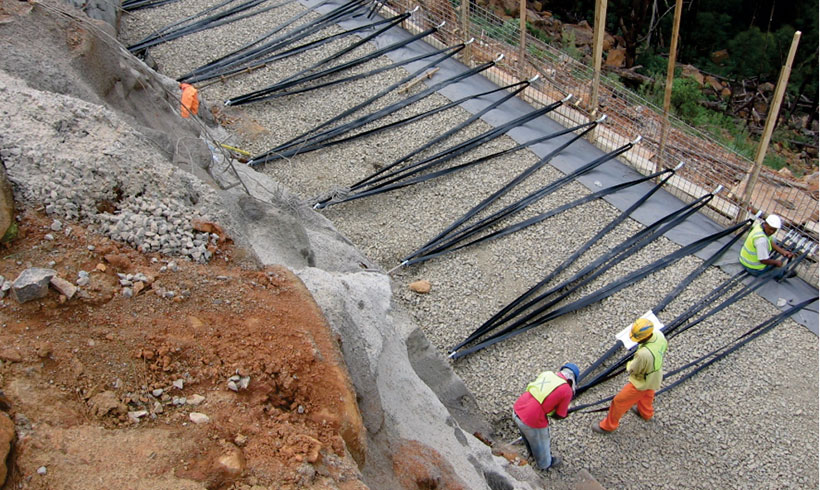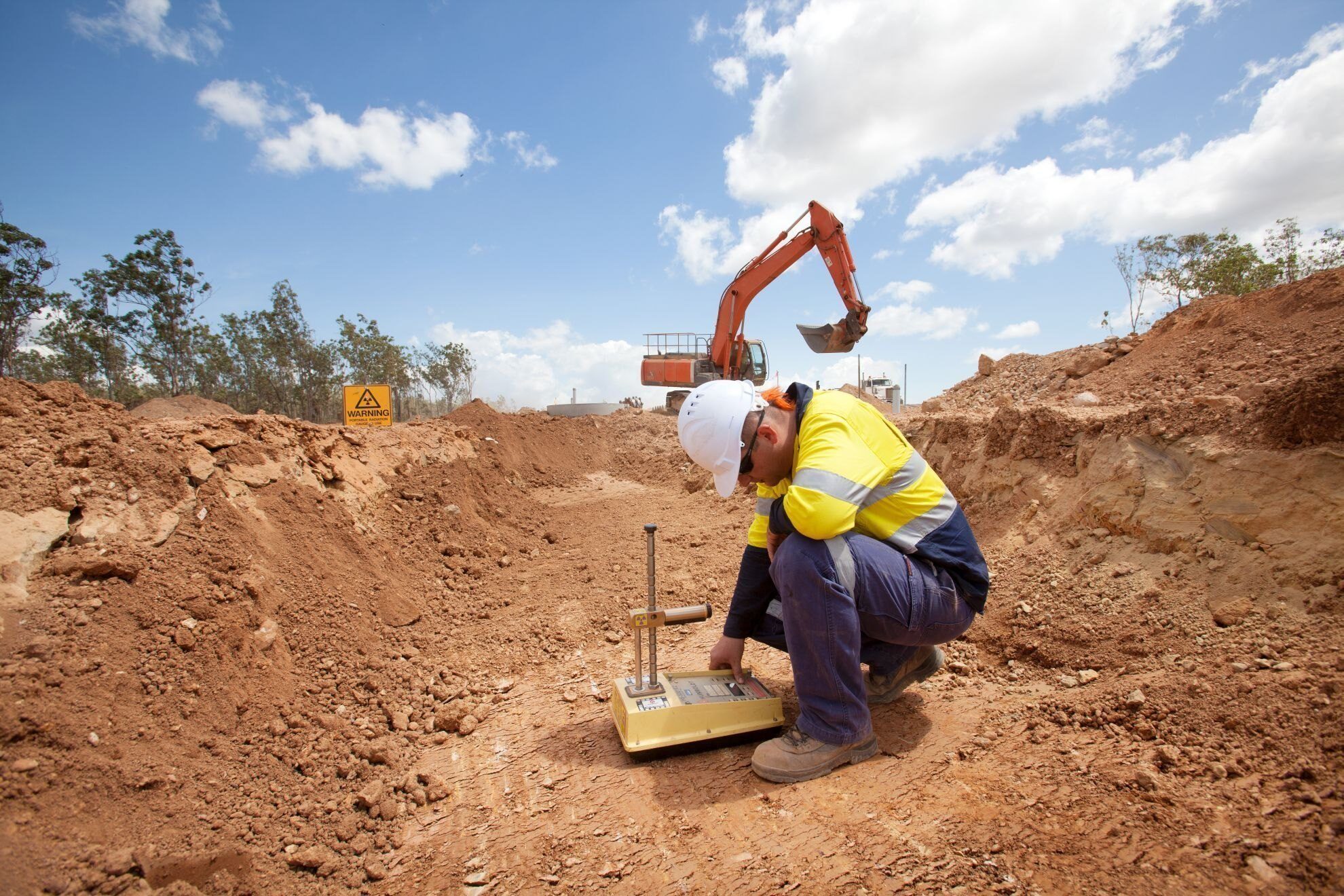The Of Specialized Geotechnical Engineering Solutions
The Of Specialized Geotechnical Engineering Solutions
Blog Article
More About Specialized Geotechnical Engineering Solutions
Table of ContentsThe Of Specialized Geotechnical Engineering SolutionsOur Specialized Geotechnical Engineering Solutions PDFsThe Greatest Guide To Specialized Geotechnical Engineering Solutions9 Simple Techniques For Specialized Geotechnical Engineering Solutions
They carry out site examinations, collect examples, do research laboratory tests, and analyze data to assess the viability of the ground for construction projects. Based on their findings, geotechnical designers give referrals for foundation layout, slope stability, keeping frameworks, and mitigation of geotechnical dangers. They team up with various other experts, such as architects, structural engineers, and building groups, to guarantee that geotechnical factors to consider are integrated right into the general project layout and application.
Foundation Layout: Geotechnical engineers play a vital role in making foundations that can safely support the desired structure. They analyze the soil conditions and load demands to figure out the appropriate foundation type, such as superficial foundations (e.g., grounds), deep structures (e.g., heaps), or specialized strategies like dirt renovation. They take into consideration elements such as negotiation restrictions, bearing capacity, and soil-structure communication to develop optimum foundation designs.
The smart Trick of Specialized Geotechnical Engineering Solutions That Nobody is Talking About
Here are some types of geotechnical designers: Foundation Engineer: Structure engineers specialize in creating and analyzing foundations for frameworks - Specialized Geotechnical Engineering Solutions. They analyze the soil problems, load requirements, and website features to establish the most appropriate structure type and layout, such as shallow foundations, deep foundations, or specialized techniques like pile foundations
They perform area screening, collect examples, and assess the accumulated information to define the dirt residential properties, geologic developments, and groundwater conditions at a site. Geotechnical Instrumentation Engineer: Geotechnical instrumentation designers concentrate on tracking and measuring the actions of dirt, rock, and frameworks. They set up and maintain instrumentation systems that check factors such as dirt negotiation, groundwater degrees, slope motions, and structural displacements to assess efficiency and give very early cautions of possible issues.
In the office setting, geotechnical engineers utilize specialized software program devices to perform computations, create layouts, and analyze information. Specialized Geotechnical Engineering Solutions. They prepare records, evaluation job specs, interact with clients and staff member, and coordinate project activities. The workplace setup provides a helpful setting for study, analysis, and collaboration with other experts involved in the task
They often see task websites to perform website examinations, evaluate geotechnical conditions, and collect data for evaluation. These brows through involve taking a trip to different locations, occasionally in remote or tough terrains. Geotechnical engineers may do dirt tasting, conduct tests, and screen construction activities to make sure that the geotechnical elements of the task are being carried out correctly.
Specialized Geotechnical Engineering Solutions Can Be Fun For Everyone
Geotechnical designers additionally function in specialized geotechnical research laboratories. In these centers, they perform experiments, carry out tests on soil and rock samples, and evaluate the engineering buildings of the products. Geotechnical research laboratory engineers work extensively in these settings, managing testing devices, running instruments, and recording information. They collaborate with other research laboratory staff to ensure exact and trustworthy testing results.
Retaining Walls: Creating walls that hold back soil to stop landslides and give stability on sloped terrains. Embankments and Earthworks: Designing embankments for roads, trains, and dams to guarantee they continue additional hints to be steady under tension. The mining sector counts heavily on geotechnical design to ensure the security and durability of its operations.
With this in mind, we have actually designed our program to prepare pupils for success. The Geotechnical Design program at the College of Delaware offers chances for innovative study and study in: Dirt and rock auto mechanics Soil-structure communication Integral modeling Computational geomechanics Foundation and planet frameworks engineering Ground renovation Incline stability and landslide stablizing Liquefaction of soils and earthquake engineering Research laboratory characterization of geomaterials and dirt support Ecological geotechnics Provided the solid requirement for renovation to our nation's infrastructurethe American Society of Civil Designers gave the united state
Geotechnical engineering is a branch of civil design; nevertheless, it entails making use of scientific approaches and concepts to collect and interpret the physical residential or commercial properties of the ground. Geotechnical engineers are associated with all stages of the style of frameworks, from principle to building. Their work is crucial in the style and preparation procedure as they evaluate the honesty of dirt, clay, silt, sand, and rock, prior to construction commencing.
How Specialized Geotechnical Engineering Solutions can Save You Time, Stress, and Money.
This is followed by a ground examination based on the findings of the desk research study and includes trial pitting and sampling to discover any prospective concerns. Geotechnical designers work within multidisciplinary teams, supported by intermediate and jr designers as well as by CAD professionals. As a senior geotechnical engineer on a hydro plant project, tasks may include taking part in technological testimonials (e.g., peer testimonials), tailings clog evaluations, dam safety reviews, and various other research studies related to the design and building of mine waste facilities.
While some professionals specialise entirely in geotechnics, others may work under titles like engineering rock hound or ground engineer within comparable capabilities. As a geotechnical designer, you'll need to: develop and preserve partnerships with customers and other professionals associated with the website, throughout each projectmaintain security requirements on website be conscious of cost effects when you make recommendationsstudy geological maps and aerial pictures from a series of resources and from different time periodsexamine helpful site construction prepares to see exactly how possible they are based on your understanding of the siteinvestigate risks or geological threats for the sitesearch for eco sensitive functions, such as landfill begin to develop accurate and expository ground modelsplan field investigationsdrill and analyse examples of bedrock, dirt, groundwater and extra products monitor various other professionals on sitesolve technical problems as they occur, such as unexpected structures at drill sitesmonitor conditions throughout and after building and construction to ensure frameworks are secure in the brief and long termadd information gathered on website to your preliminary researchcreate geotechnical calculations, drawings, and 2 or three-dimensional computer system models interpreting i loved this the datamake suggestions concerning the recommended use the website.
There are whole lots of possibilities to meet brand-new individuals, as you'll collaborate with a variety of experts at every site. The work can be demanding as you might be accountable for the safety of others while on website. There is additionally a high degree of financial obligation, as the suggestions you make can have significant cost implications.

Report this page